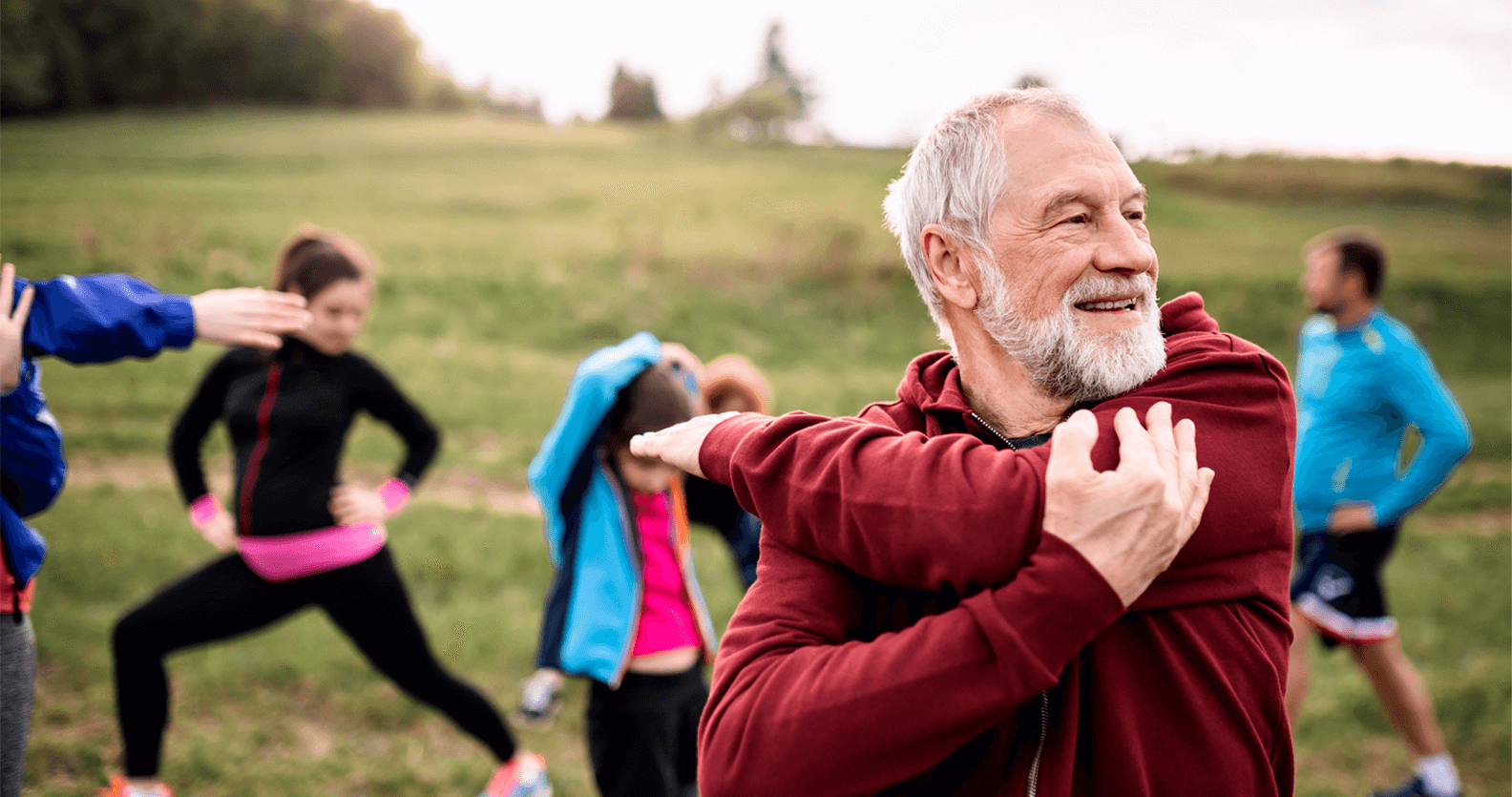We hardly have to tell you that there are some nasty bugs around right now. Winter is the worst time of year for colds, flu and vomiting viruses, not to mention COVID-19.
There’s no foolproof way to avoid them all. But follow these 5 simple steps and you’ll boost your immune system and reduce the risk.
1. Get outdoors every day
Pull on your cosiest coat, hat and gloves - and wellies if you need them - and head outside every day.
Do what you enjoy most, or mix it up. Walk, run, cycle, or try outdoor tai chi or upper body strength training. The exercise will boost your immune system.1 And natural daylight will help to regulate your mood and sleep.2
See if you can build some outdoor activity into your daily routine. Maybe an after-breakfast stroll, or take your afternoon mug of tea into the park?
2. Nourish your body
Sadly there’s no magic ingredient that will supercharge your immunity. But eating a balanced diet keeps your immune system strong, ready to fight off winter nasties.4
Aim for at least 5 portions of fruit and veg a day. Stick to whole grain bread and pasta. And include nuts, seeds and dairy or dairy alternatives.
Try to include foods rich in zinc, selenium and vitamin D. These are especially good for anti-viral immunity.4 You can get zinc from meat, poultry, cheese, shellfish, nuts, seeds and whole grains. Selenium is found in poultry, fish, eggs, nuts, seeds and organ meat such as liver or kidney.
For vitamin D, experts recommend taking a daily 10 microgram supplement between October and March.5 This is because we don’t get enough sunlight in winter for our bodies to make the vitamin D we need. And it’s difficult to get it all from your diet, particularly if you eat a vegetarian or vegan diet. Sources of vitamin D include oily fish, red meat, liver, egg yolks and some fortified foods like spreads or cereals.5
3. Sleep enough, but not too much
Sleep is important for good immune function. The risk of picking up an infection is higher in people who sleep less than 6 or 7 hours a night. And there’s evidence of reduced vaccine effectiveness in people who regularly don’t manage 7 hours’ sleep.6
Over the dark winter days, it can be tempting to hibernate under your cosy duvet. But oversleeping - more than 9 hours a night - may do more harm than good. Longer sleep is linked with a decrease in immune function and increased inflammation.7
So getting the right amount of uninterrupted sleep every night will help you stay well in winter.6 Most people need 7 to 9 hours. This might be more if you’re very active, or less if you’re older.
For a refreshing night’s sleep, keep your bedroom dark and the temperature just right. Ideally, avoid caffeine for 6 hours before bedtime.8 And don’t be tempted to pay back your sleep debt at the weekend. Better to focus on your sleep routine during the week.
4. Stay warm
Our bodies are more vulnerable to illness if we’re constantly cold, especially older people and those with health conditions.3
So heat your home to at least 18°C, especially if you’re over 65 or not very mobile.[3] Drink hot drinks and try to have a hot meal every day. Eating regularly also helps you stay warm. If you’re feeling chilly, snuggle up in a blanket or have a hot bath.
5. Get the flu jab
We don’t yet know if this year will be a bad flu season.9 But we do know that flu can make you seriously ill, and could be especially dangerous if you get it at the same time as COVID-19.10
Luckily, there’s one easy way to cut the risk: get a vaccination. The flu jab is safe and effective. It’s free if you’re over 50, pregnant, work in health or social care or have certain health conditions. Check with your doctor to find out if you’re eligible. If not, private flu jabs are available. You might find that your workplace is offering them, or may need to pay yourself. Some pharmacies are offering walk-in flu vaccinations, so check locally.
Supporting your immunity will help to protect yourself, and your family and friends. So take care and stay well this winter!
References
[1] UK Chief Medical Officers' Physical Activity Guidelines. September 2019. https://assets.publishing.service.gov.uk/government/uploads/system/uploads/attachment_data/file/832868/uk-chief-medical-officers-physical-activity-guidelines.pdf
[2] Seasonal affective disorder (SAD) www.nhs.uk/mental-health/conditions/seasonal-affective-disorder-sad/overview/, published 30 July 2018
[3] How to stay well in winter. NHS. www.nhs.uk/live-well/healthy-body/keep-warm-keep-well/, published 8 November 2019
[4] Nutrients such as zinc and a healthy gut microbiota could be part of the puzzle in tackling COVID-19. British Nutrition Foundation.
www.nutrition.org.uk/news/2020/nutrients-such-as-zinc-and-a-healthy-gut-microbiota-could-be-part-of-the-puzzle-in-tackling-covid-19-say-nutrition-experts/, published 26 November 2020
[5] Vitamin D. NHS. www.nhs.uk/conditions/vitamins-and-minerals/vitamin-d/, published August 2020
[6] How sleep Affects Immunity. Sleep Foundation. www.sleepfoundation.org/physical-health/how-sleep-affects-immunity, published 19 November 2020
[7] Oversleeping. Sleep Foundation. www.sleepfoundation.org/how-sleep-works/oversleeping, published 10 June 2021
[8] Caffeine and sleep. Sleep Foundation. www.sleepfoundation.org/nutrition/caffeine-and-sleep, published 22 January 2022
[9] Flu season 2021: how worried should we be? University of Cambridge. https://www.cam.ac.uk/stories/influenza, published October 2021
[10] Flu vaccine. NHS. www.nhs.uk/conditions/vaccinations/flu-influenza-vaccine/, published 24 August 2021



